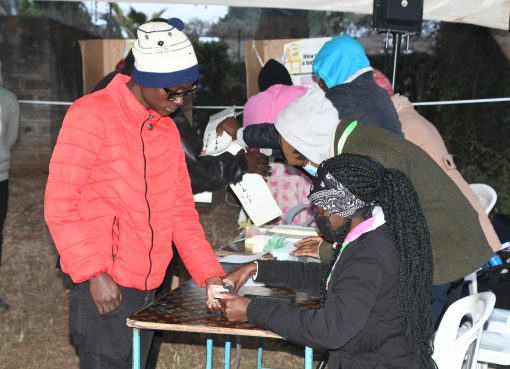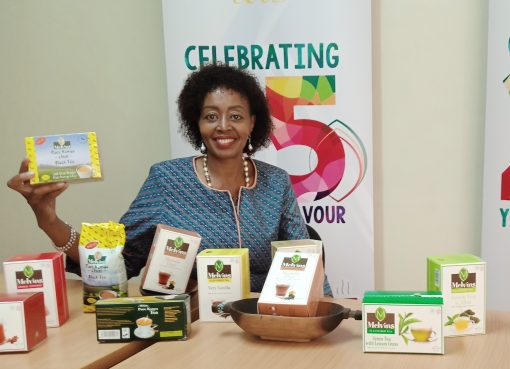Thousands of the big five cats namely lions and tigers are being farmed in cruel conditions and traded to fuel lucrative global market for traditional medicine products.
High demand of lions and tiger bones for medicine in the Asian markets especially is fueling suffering and killing of lions across Africa.
A research conducted by World Animal Protection (WAP) has revealed that lions and tigers around the world were being poached from the wild and their body parts and bones used in making products believed to treat rheumatism, wine and even ointments among others.
Speaking during the launch of the report, dubbed Trading cruelty – how captive big cat farming fuels the traditional Asian medicine industry, Research Manager from WAP Dr. Patrick Muinde said trading in body parts, especially bones from big cats should be worrying as demand for wildlife traditional medicine grows.
“As the demand for traditional medicine and use of lions and tiger products continues to grow in Asian markets, the numbers of African big cats will continue to plummet due to poaching of endangered wild big cats in the name of traditional medicine whose efficacy has not been confirmed by modern science and this needs to stop,” Dr. Muinde said.
Dr. Muinde further said that the report maps different countries in Africa naming South Africa as one of the countries that is breeding lions and keeping them in captivity.
“We have around 6, 000 to 8, 000 clients in these breeding facilities which raises the animal welfare concerns since the animals are confined in controlled environments and they are not left in their natural environment,” he said adding that normally wild animals are used to travelling long distances and have large territories ranging from 7 to 1, 000 square kilometers which could not be met in such facilities.
He explained that lions have been quite well spread in Africa but the population has decreased by 43 percent and very few were remaining in the Eastern and Southern African countries.
“Kenya currently has 2, 000 lions according to KWS statistics so it’s a call for all of us to observe this population because if this continues, we will not have any more lions,” he said.
Dr. Muinde said 2018, WHO recognised traditional medicine as a viable treatment option and that in a way has led to increased demand of traditional medicine forcing African countries to start being vigilant since no one knows the channels which could be used for instance to poach the animals.
“There has been an illegal channel by neighbouring countries where there is illegal poaching and those lions are taken to South Africa and since we cannot differentiate the ones sourced from the wild nature and the ones from the farm, we have seen lions killed from other parts of Africa and then taken to feed into that channel,” he added.
Dr. Muinde said when demand for traditional medicine increases, it would require supply of these products and Kenya being a country that has lions and where poaching sometimes take place, channels might crop out and this would affect our population.
A Veterinarian from the Kenya Wildlife Service and head of Captive Wildlife Management Dr. Francis Gakuya said the report should be a wakeup call for our country.
Dr. Gakuya explained that Kenya does not have captive breeding because its policy is guided by conservation and believes animals should be conserved in their free range.
“Although we have some ex-situs conservations that are more of orphanages for purposes of nurturing and caring for the animals especially the orphans, we discourage breeding in captivity as much as possible other than farmed wildlife, where their welfare concerns are taken care of and are well stipulated in the Wildlife Conservation and Management Act,” Dr. Gakuya said.
He noted that the biggest threat to the lions in this country is the habitat loss and human wildlife conflicts especially on poisonings but noted that despite this, the conformities to animal welfare principles because of breeding should be a wakeup call.
The principle of WHO on the issue of medicine is not very specific when it comes to medicine from animal products since there are others mostly from plants, Dr. Gakuya said.
He noted that the generalisation in recognition of traditional medicine but not specifically from animal products should however be a worry in a way in that, if the animal and animal products find their way to traditional medicines, then it will be an issue, and it is therefore important to engage the relevant authorities on the same.
Dr. Gakuya noted that Kenya has the right legislation and policy and that the law which is in the Wildlife Conservation and Management Act enacted in 2013 has a very good provision on protection, for management and conservation of wildlife in this country.
The WAP report documents the suffering that the animals are subjected to such as being caged in tiny enclosures resembling industrial factory farms. WAP says they will be mobilizing consumers, medicine practitioners, and governments to stop the confinement and exploitation of the big cats for traditional medicine use.
By Wangari Ndirangu
Friday, November 22, 2024




